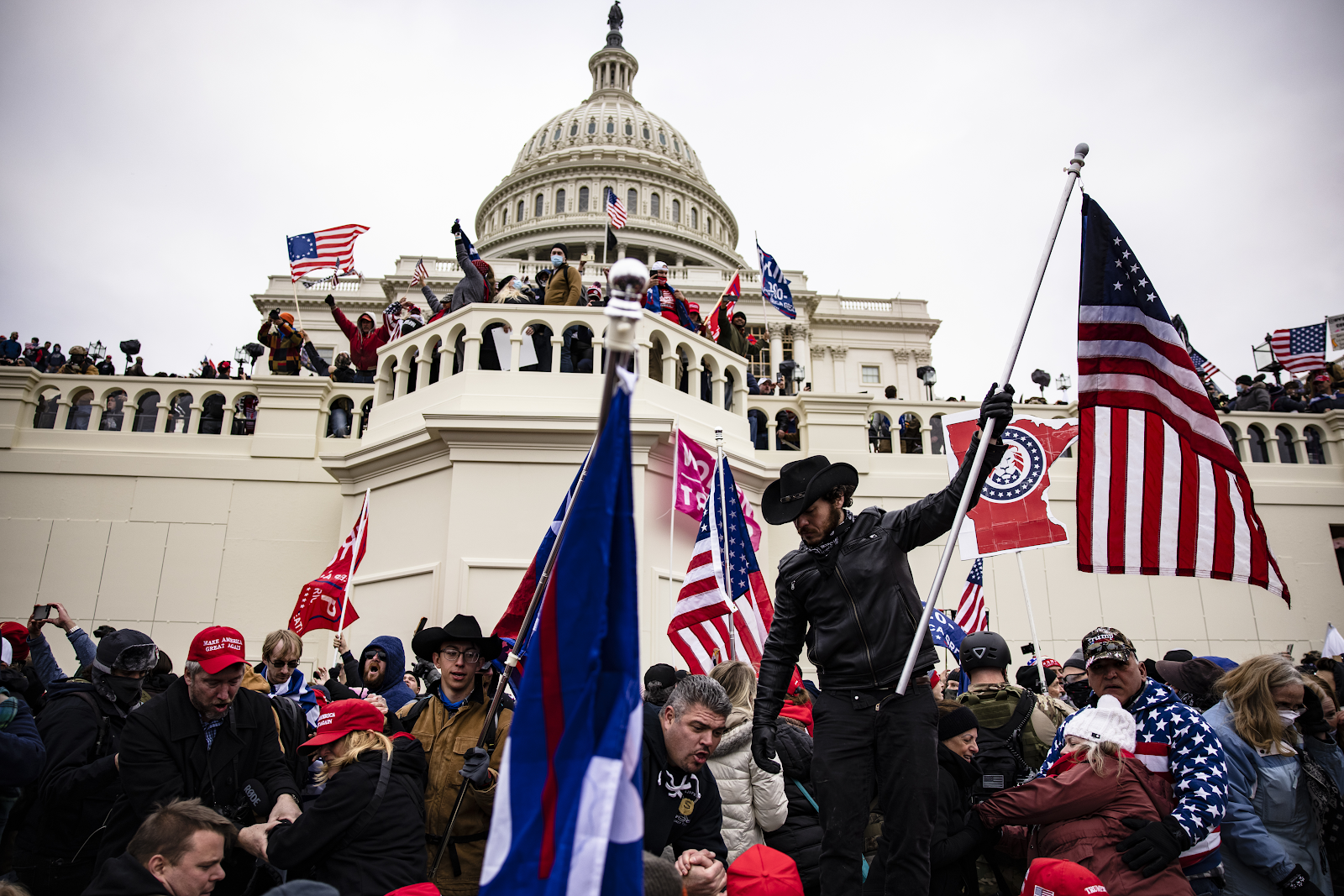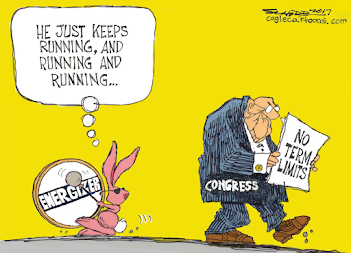The Crisis
By Baybars Charkas
America in 2022 faces a crisis the likes of which it has not seen or felt within its borders since the Civil War. This fact is obvious to anyone who has been following recent events, though many people are happy enough to ignore the gathering danger.
Like the Civil War of over one hundred fifty years ago, this crisis is a crisis of democracy. It concerns one political minority, in our era the Republicans, and its attempt to force an unpopular, reactionary agenda on an unwilling American public. The disease at the heart of this Republican Party traces its disreputable lineage back to the days of segregation and the Civil Rights Era, though it was given a new life and voice in Donald Trump. Since losing the 2020 election, Trump has insisted, without so much as a pretense of evidence, that the election was stolen from him. Trump's delusions do not need to be given more space here, but they have captured the support of Trump's sycophantic supporters. Trump's election falsehoods enjoy supermajority support among Republican voters, and Republican politicians, rather than rebuking Trump's lies, have instead embraced and endorsed them. Up and down the country, Republican lawmakers have introduced, advanced, and passed laws that limit voters' access to the ballot, that disempower independent election officials, and that siphon away the power to certify elections away from those independent officials and toward partisan state legislatures. All of these efforts, it seems, are undertaken in order to orchestrate a coup of the 2024 election in Trump's favor
The consequences of Trump's four-year reign over America have become plain: a significant number of Americans, along with one of the country's two major political parties, have abandoned belief in democracy as an organizing principle. Trump is now the unchallenged king and autocrat of the Republican Party, and his word, be it false, is law for the party and millions of its members. The Republican Party, founded by abolitionists and headed up by such men as Abraham Lincoln and Theodore Roosevelt, is now the personal fief of a madman, a sick and narcissistic lunatic.
If Trump (or a Republican in his fashion) is allowed to win the country's highest office once more, democracy in America will die. This is a certainty.
The authoritarian turn of the Republican Party should cause any Democrat extraordinary concern, as it should for any lover of liberty. Without a sustainable democracy in America, any of the progress we have made or wish to make on civil rights, women's reproductive health, criminal justice reform, climate change prevention, immigration equity, healthcare expansion and so forth will be stalled, if not reversed. The protection of American democracy must top every Democrat's list of priorities precisely because everything else we hold dear hinges on it.
Many Democrats, having watched with grief and fear as Republicans have broken down bit by bit the foundations of American democracy, feel exasperated and helpless. They point to critical flaws in America's republican model and intimate that, because these flaws are nearly impossible to correct, the American democratic project is lost.
Now, the the systematic failures of the American model are not at all difficult to find: the undemocratic Electoral College, an upper house that grossly distorts political representation, a judicial system that has become politicized beyond proper function. The naysayers are right to say that American democracy can never really be healthy again unless these pernicious elements are adjusted or abolished.
And yet, American democracy can be saved, or at least preserved for future generations, which, I hope, will be wise and industrious enough to bring about the necessary systemic reforms. The tools are in our toolbox, and the means for change already exist; as Bill Clinton once said, "There is nothing wrong with America that cannot be cured by what is right with America." If we are to secure our democracy for those future generations, however, we must act quickly and forcibly, as any delay, even for a day, brings the Republican assault on democracy closer to its fruition. To that end, I have a few action points in mind.
The John Lewis Voting Rights Act and the Freedom to Vote Act, both of which have failed passage in the filibuster-infested Senate, must pass. The benefits of both bills must not be understated: by easing up access to the ballot box and enshrining a decent degree of federal supervision over state-run and -controlled elections, we frustrate Republican's attempts to install minority rule, as naturally the majority of Americans to do not number among the Republican's ranks and dislike the party's policies. While the passage of both bills would be a welcome step, it is still hardly enough. Democrats must turn their attention altogether to overhauling the Electoral Count Act, which allows lawmakers to object to and cast away duly-certified electoral votes. An amendment that prohibits members from mounting spurious and superfluous challenges to legitimate votes is much needed, and such an amendment appears to enjoy bipartisan support for the moment, though it is unclear whether that support will stand.
Furthermore, Democrats must oppose with ruthless zeal any attempts at the state level to disempower or intimidate independent election officials, and any attempts to throw elections in Republican's favor by gerrymandering electoral districts. Recent efforts by Democrats to hold back Republican sabotage of the redistricting process have borne positive results here in Pennsylvania. These efforts must be kept up and redoubled, particularly as they are of the most exceptional importance given the approaching midterms. If the Republicans, as is feared, win back control of the House and Senate, they will be sure to play the American people a prelude of their final takedown of American democracy come 2024, to say little of how they will smother all hope of President Biden enacting any meaningful legislation to the credit of the American people.
These bills and policy points are good, no doubt, but they are still not enough. Even if we roused Congress into passing the most comprehensive voting rights legislation in the world (which I do not at all believe is impossible or even impractical), the resulting peace would be stable, but it could never be sustainable. If we hope for substantial and sustainable success, we must accompany political action with an honest recalibration of attitude and of messaging. It is long past time to acknowledge that the Republican Party and the majority of the men who head it up are no longer good-faith actors, nor do they have any interest in nourishing a democratic system of government that disadvantages their policies. As a consequence, ancient manners of bipartisan civility and political cordiality have to be done away with. There is nothing respectable or noble or decent about collaborating with people who hate democracy.
Since we cannot work with Republicans, we must learn to work around them; that is, we must take our appeal to the American people directly. The threat to American democracy must become the subject of every press release, news conference, and town hall of every Democrat in every city and in every state where the love of liberty persists. It is on us to marshal the outrage of the people, to convince them to believe in their democracy, and to fight for it. We must sell to voters a politics of the possible, and we must believe emphatically that change for the better is tangible, but only so long as we set our minds, hands, and hearts to the task. Only that way can we hope to keep American democracy for long.
The mission I have just laid out would appear arduous to anyone, but we now must throw ourselves into this work anyway. This means that hard toil, pain, grief, and disappointment are all ahead. It means giving up a measure of the peace and quiet that we enjoy now. But, as we contemplate the unfortunate job that history has set out for us, we should recall the Americans of the Civil War, who fought, bled - died, even- so that their democracy could be one and whole again. As we find ourselves in similar times, it would do us well to wonder how well we measure up to that generation of Americans, to ask whether our own generation would offer up the same sacrifices. I believe that we would, that we must, and that we will. Now all that is left is for us to prepare to confront this greatest challenge of our age, and to work without letup until we can look back and say confidently that we have created an America our children would be proud of.




Comments
Post a Comment